Codename : Westfort Hop Water Pilot
I have spent some time researching hops, reading up on beer and mead brewing techniques, and generally learning as much as I can about the processes. It was inevitable that the algorithms were going to hand me a video suggestion on how to make hop water. This is my scaled down, experimental, completely untested attempt at making a carbonated hop water. Yes, you read that right. Carbonated. I don’t have the equipment to force CO2 into the beverage, so I am relying on my technique of bottle conditioning.
Recipe inspiration : TheBruSho Ultimate Hop Water
Ingredients
- 2 g Chinook hops (See brew notes below)
- 800 ml of filtered or distilled water (chlorine in home water may produce off flavours)
- 1/16 ml Nottingham dry ale yeast (See brew notes below)
- 5 ml Corn (or white) sugar
- 1.25 ml of lime (or lemon) juice
Vital Stats
Carbonation : 1.8
Steep Day
- Add the water to whatever vessel you will be steeping in.
- Add the hops to a clean cloth tea bag, this is called dry hopping.
- Allow the hops to infuse at room temperature for 4-6 hours, or until you get the aroma you like. Try to avoid the temptation of squeezing the bag, you don’t want to impart any particulate matter from the bag.
- Sanitise everything required for bottling.
- Once the desired aroma has been reached, remove the hop bag.
- Add the sugar directly into the bottle, add approximately half the hop water into the bottle, cap it and shake vigorously. This will ensure the sugar is dissolved completely.
- Add the remainder of the hop water to the bottle, cap it, and shake vigorously once again.
- Add the dry yeast directly into the bottle. It is already room temperature, wait 15 minutes for the yeast to re-hydrate.
- Put the cap back on, and shake vigorously, yet again.
- Add the lime (or lemon) juice, cap it, then shake vigorously one last time.
- Add it to the shelf, and wait at least one week for it to carbonate.
Steep Notes
- I used Chinook hops, as I like that pine taste it imparts, I regularly use it in my beer. Use whatever hops that appeal to you. Use more, use less, this is about your taste, too!
- The video I watched said to steep the hops for 6 hours, I found at 5 hours, I had the aroma I was looking for. I took a tiny sip, it was a taste I liked, too.
- The declared measurement of yeast is purely a guess, 2-3 ml of yeast can easily create a beer at 3-4% ABV, so a tiny amount should be enough to react with the sugar to get the carbonation. For all I know, I could have used less.
- Knowing the hops plus bag would absorb some water, the starting measurement of water to be slightly higher, with the anticipation it would reach the desired 750 ml.
- Using a carbonation calculator, the 5 ml of sugar was chosen to achieve the approximately 2 CO2-vol I am hoping for.
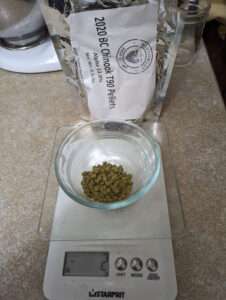
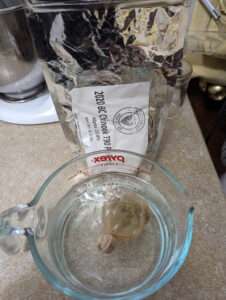
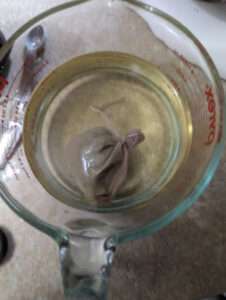
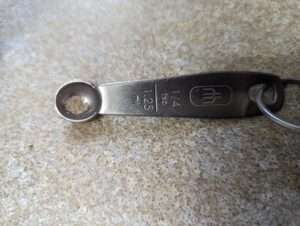
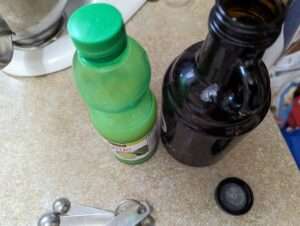
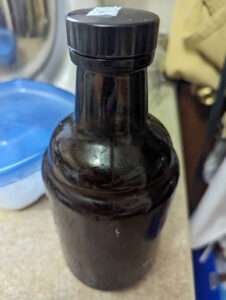
Brew & Tasting Notes
- Pleasantly pleased, definitely got the taste I was looking for.
- The lime addition felt just right.
- This steeped for 5 hours, I think I will go to 6 hours for the next one.
- The carbonation was too low, I wasn’t sure how the yeast and sugar would behave in the bottle, so I erred on the side of caution, I will likely double the sugar for the next one.
- I will consider options to sweeten going forward.
Steep day : 27-Jan-2024

 To provide the best experiences, we use technologies like cookies to store and/or access device information. Consenting to these technologies will allow us to process data such as browsing behaviour or unique IDs on this site. Not consenting or withdrawing consent, may adversely affect certain features and functions.
To provide the best experiences, we use technologies like cookies to store and/or access device information. Consenting to these technologies will allow us to process data such as browsing behaviour or unique IDs on this site. Not consenting or withdrawing consent, may adversely affect certain features and functions.